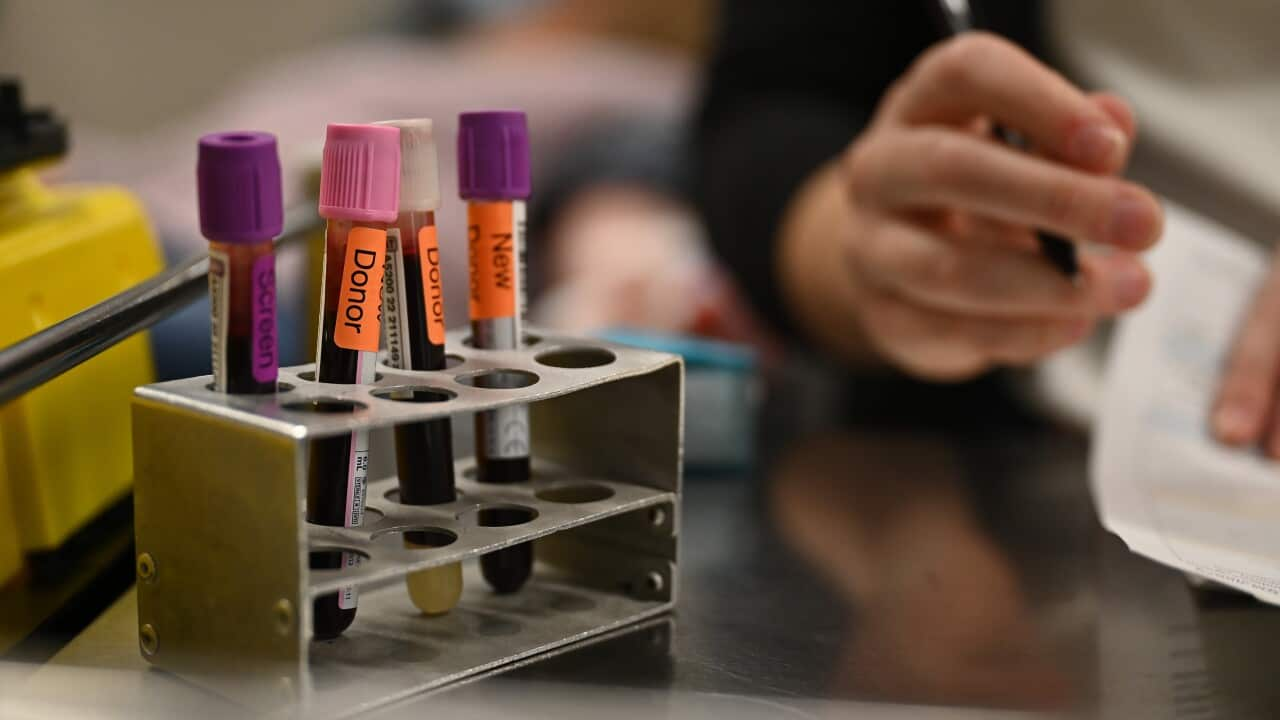Key Points
- The ban on blood donors who lived in the UK between 1980 and 1996 was introduced to stop the spread of mad cow disease
- Australian health authorities are now overturning the decades-long ban on blood donors
A ban that prevented some people who had been in the UK during the 1980s and part of the 1990s from donating blood in Australia has now been lifted, but others who are still unable to donate blood also want rules changed.
The ban had been on blood donors who lived in the UK between 1980 and 1996, after the prohibition was introduced in 2000 to stop the spread of mad cow disease.
The change, which required approval from the Therapeutic Goods Administration, came about because the risk of mad cow disease, also known as vCJD, has diminished.
According to Australian Red Cross Lifeblood, this makes it possible for 18,000 more people to donate blood.
LGBTIQ+ advocates are calling for further relaxation of the rules around blood donation so thousands more litres of blood can be donated each year.
At present men who have sex with men, trans women and non-binary people who have sex with men are not able to give blood unless they abstain from sex for three months.
Australia's blood supply is dangerously low — our goal is simple, to help those in need by giving blood
Let Us Give is a campaign being run by LBGTIQA+ advocacy group, Just Equal. It wants that barrier to donation taken away.
The ban was put in place based on a perceived risk of HIV transmission, and restrictions were introduced in the 1980s when HIV/AIDS transmission was at its highest.
Let Us Give Campaign spokesperson, Thomas Buxereau, said the campaign is about increasing the supply of safe blood by adopting individual risk assessment and removing “antiquated bans based on the gender of your sexual partner".
"According to Lifeblood, Australia's blood supply is dangerously low — our goal is simple, to help those in need by giving blood,” he said.
Lifeblood Director of Research, Dr David Irving, said the “deferral period” had recently been reduced from 12 months to three months and Lifeblood is considering reducing that further or removing it.
“We're continuing to review those various different deferrals. But I think the important thing is that we do first and foremost is to ensure that we've got a safe and secure blood supply for patients,” he said.
Dr Irving said Lifeblood was considering allowing men who have sex with men to be able to donate certain blood products.
“We're in constant discussion with Therapeutic Goods Administration about that, particularly for our donors, plasma and plasma donation, there are a number of different steps are involved in the fractionation process [separating blood into its component parts] that that that result in inactivation of viruses,” he said.
But Mr Buxereau said allowing blood plasma donation by men who have sex with men will not solve the problem of low supplies of whole blood.
"If Australia adopts a new policy whereby all donors of whole blood are assessed for their individual risk regardless of the gender of their sexual partner, there will be an extra 25,000 litres of whole blood available to save the lives of Australians in need," he said.
LISTEN TO

UK blood donors may soon be allowed to donate in Australia again
SBS News
29/04/202207:31
Researcher for Let Us Give, Dr Sharon Dane, said similar proposals for gay plasma donation policies overseas had since been abandoned.
"In the Israeli, Canadian and French trials, plasma from gay donors was quarantined and frozen for three to four months so the donor could return and be tested for HIV. For a variety of reasons, many donors could not return in that timeframe and their plasma had to be dumped,” she said.
"We call on Lifeblood to explain how plasma collection in Australia will be any less wasteful than in other countries.”
Dr Dane said decreasing HIV infections among gay men and increasing infections among other demographic groups including heterosexuals, means that, to keep the blood supply as safe as possible, Australia should individually assess the risk of all donors, regardless of the gender of their sexual partner.
Those who had previously been turned back from donating blood because they had been in the UK in the 80s or 90s blood are expected to be contacted by Lifeblood.










